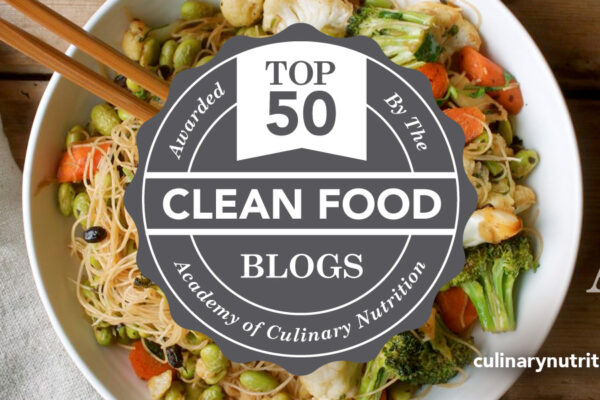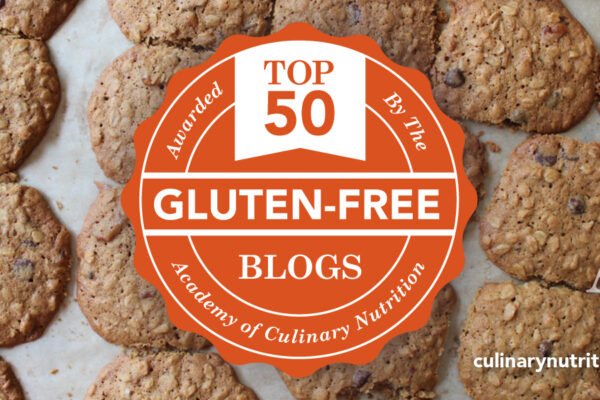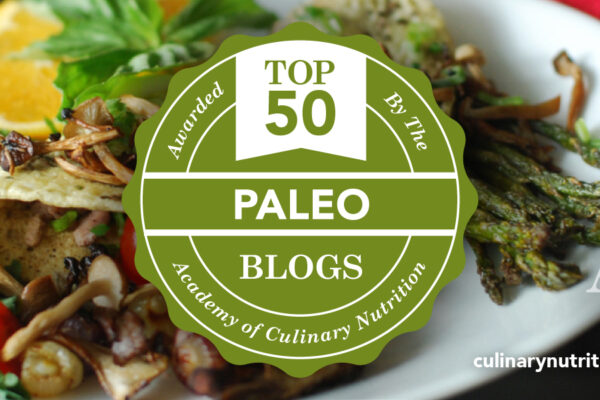11 Best Anti-Cancer Foods for Cancer Prevention
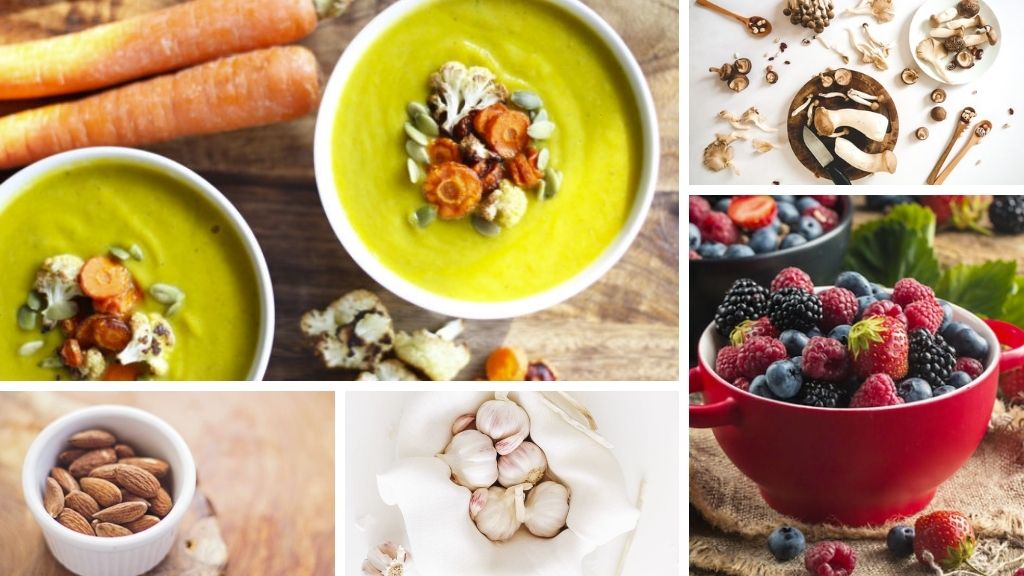
With cancer continuing to be one of the top leading causes of death in the USA, Canada, and middle to higher-income countries around the globe, it’s an issue most of us cannot ignore. Nutrition plays a strong role here, and that’s why I’m sharing some of the best anti-cancer foods you can include in your kitchen.
Cancer hit home for me all the more when a doctor took one look at a bump I had and immediately said, “I’m so sorry but I think this is cancer. We need to do a biopsy.” A few days later, when the pathology report came back I was officially diagnosed with a hormone driven carcinoma and referred to an oncologist.
My world suddenly changed and so did my priorities.
While many people may believe cancer is mostly a genetic issue, research continues to show that inherited genetics only play a 5-10% role in all cancers. That means the majority of cancers are caused by personal lifestyle, including diet and movement, exposure to environmental and carcinogenic chemicals, and hormone disruption.
The good news is that means we can personally do something about reducing our own risk of cancer.
The night I was diagnosed, I immediately started researching online and ordering books about what I could do to support my body in healing and in reducing further cancer risk. Learning about what we can do to thrive with cancer quickly became a passion. Over time it blossomed into my training as a Certified Culinary Nutrition Expert and Certified Instructor through the Academy of Culinary Nutrition, and I became a Certified Cancer Coach so I can serve other cancer patients through my work with Shrink the Mutant School.
The Benefits of Nutrition and Cancer Fighting Foods
Since being diagnosed with cancer in 2017, I have been thriving while living with the disease. I’ve had a great quality of life and a peace that living beyond cancer is conceivable. I attribute most of this to having eternal hope, believing healing is possible and being intentional with supporting my whole self, especially with my physical body.
Several studies show there is a benefit to being intentional with nutrition and anti-cancer foods while living with cancer. The National Cancer Institute even declares, “Good nutrition is important for cancer patients.”
Supporting your body during cancer with intentional nourishment of anti-cancer foods can help you better cope with treatments, increase your quality of life, help balance hormones, as well as impede the cancer process. Eating a plant-rich diet fuels the body’s cells with important information for repairing and healing.
An anti-cancer diet plays a large role in prevention, too, and mitigating your risk.
A focused anti-cancer diet doesn’t have to be complicated. It starts with adding more plants to your meals every day and reducing the inflammatory ingredients you consume.
11 Best Anti-Cancer Foods for Cancer Prevention and Recovery
These cancer fighting foods can help support the body during cancer and reduce your risk of developing cancer in the first place.
Allium Family
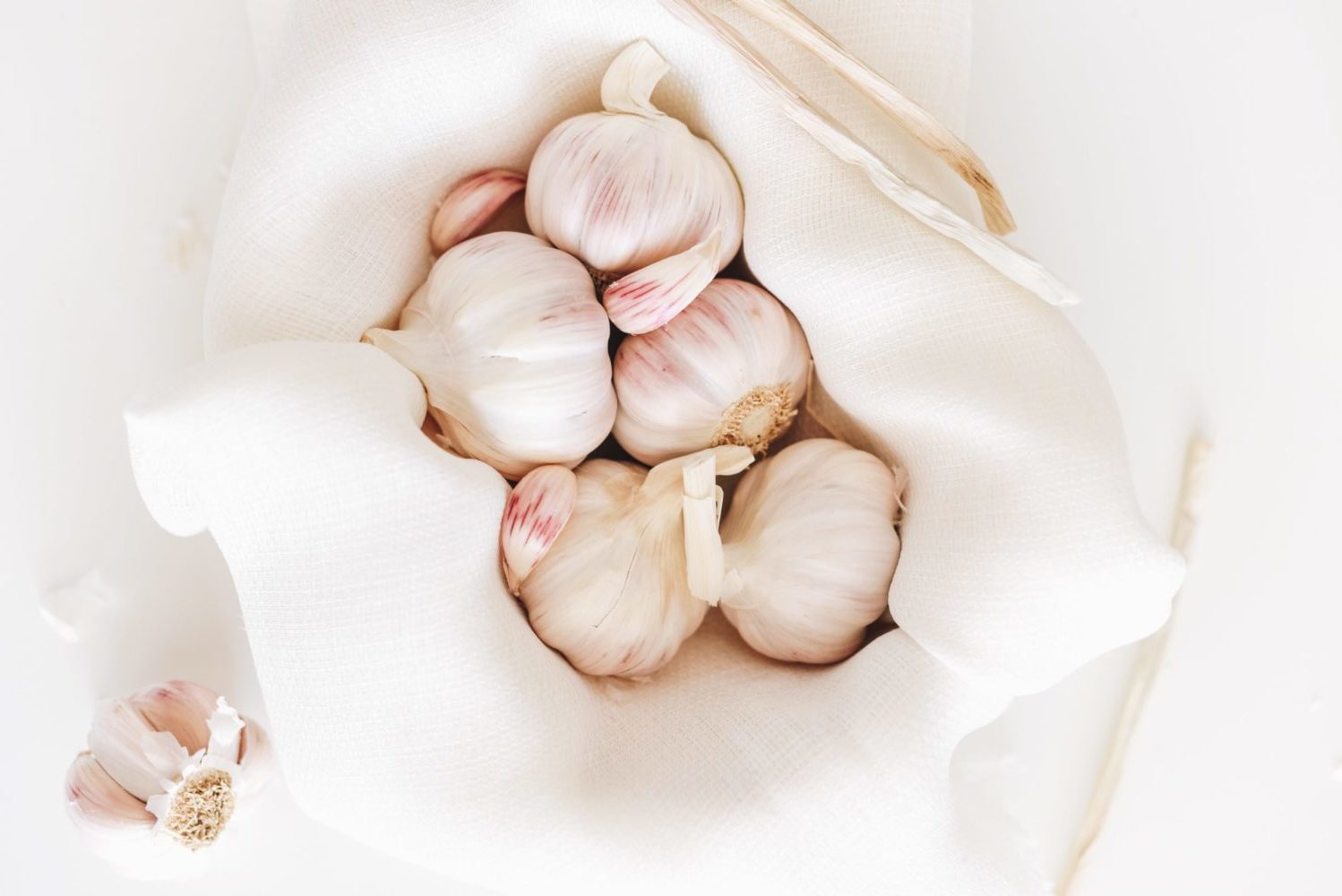
Photo: Gaelle Marcel from Unsplash
This family of vegetables is well known for its proven anti-cancer properties that help with both preventing the development of cancer as well as interfering with cancer growth and metastasis. These vegetables have cancer fighting sulphur compounds and flavonoids, among other powerful polyphenols.
The allium family includes:
- Garlic
- Onions
- Scallion
- Shallot
- Leek
- Chives
One of the most well-known anticarcinogenic compounds of this family is the allicin in garlic, which is created after you cut or crush it. And the impressive flavonoid quercetin, especially found in onions, has demonstrated several significant antitumor activities.
Apples
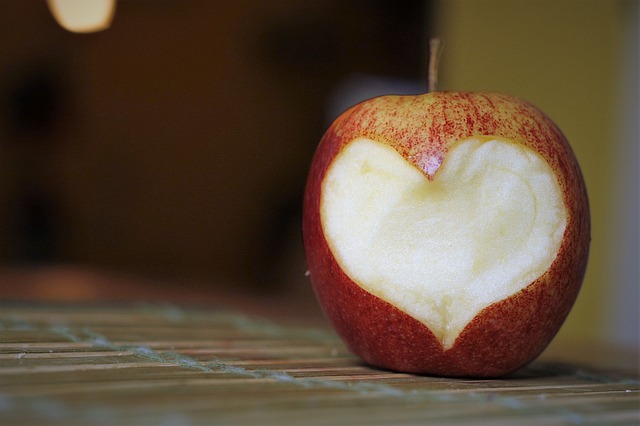
Apples are a good source of fiber that can impact both your risk of cancer as well as your health during cancer. The viscous fibers in apples, like pectin, may help with blood sugar health while fermentable fibers promote a healthier gut microbiome. Both blood sugar regulation and gut health can play a role in the immune system’s ability to reduce chronic inflammation and respond to cancer cells.
A meta-analysis of 41 observational studies of apple consumption in humans and the association of cancer showed those who consumed apples had a reduced risk of a variety of cancers.
Berries
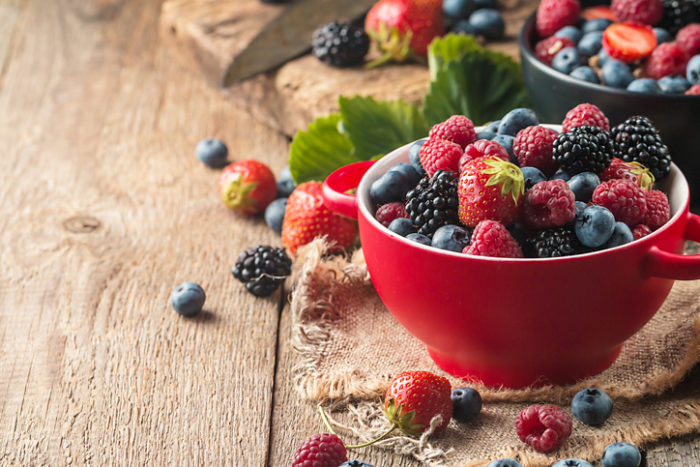
Photo: iStock/Aksenovko
A 2016 study reviewing 61 research papers on berries’ effect on cancer in human and animal models revealed berries have a variety of anti-cancer advantages that impede the initiation, progression and development of cancer. Some of these cancer-fighting benefits include but are not limited to:
- anti-angiogenesis (impedes the cancer cell blood supply)
- inhibits metastasis (cancer spread)
- induces apoptosis (cancer cell death)
- interfering with key pathways that support cancer growth
Some berries to enjoy include:
- Blueberries
- Raspberries
- Blackberries
- Strawberries
- Cranberries
- Elderberries (great in an immune-supportive syrup)
- Pomegranate (yes, it’s part of the berry family!)
Berries are rich in the antioxidant polyphenol called ellagic acid. According to a paper published in 2017, in vitro (test tube or petri dish) studies of the effects of ellagic acid on cancer cells shows potential for reducing normal cell damage and promoting cancer cell death during radiation therapy.
Carrots
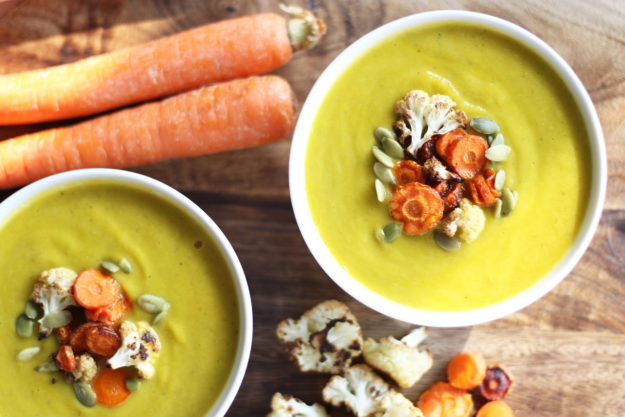
Photo: Abigail Hopkins
Beta carotene is what gives carrots their orange colour and is a precursor to Vitamin A. Vitamin A is an essential nutrient that has been shown to have anti-tumor effects and induces apoptosis (cancer cell death). A mice model study revealed the combination of EGCG from green tea and Vitamin A had the anti-cancer benefit of suppressing tumor growth.
Carrots are an incredibly tasty and sweet root vegetable – learn more about them here, or try one of these carrot recipes:
Cinnamon
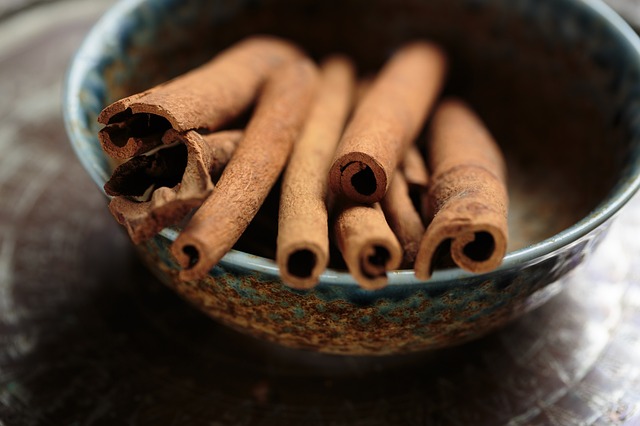
Along with supporting proper blood sugar metabolism (an important component of cellular health during cancer), cinnamon helps limit the progression of cancer by inducing apoptosis (cancer cell death). An easy spice to add in to daily life, cinnamon was shown in mouse models to reduce tumor size and impair metastasis. Many studies reveal cinnamon’s ability to limit cancer and show it deserves attention and use in an anti-cancer diet.
Cruciferous Vegetables
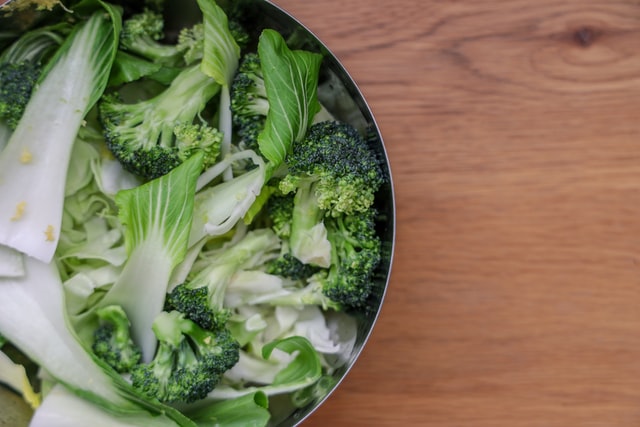
Photo: Mor Shani from Unsplash
Cruciferous vegetables are abundant in anti-cancer sulphur-containing compounds that make them excellent anti-cancer foods. Some of these compounds form detoxification enzymes and bioactive byproducts like indole-3-carbinol (I3C) and its derivative diindolylmethane (DIM). Along with supporting proper hormone metabolism and liver function, I3C and DIM have strong anticancer mechanisms and have been shown in epidemiological studies to potentially reduce cancer risk and inhibit cancer cell growth.
The cruciferous family includes:
- Broccoli
- Cauliflower
- Cabbage
- Brussels Sprouts
- Bok Choy
- Broccoli Sprouts
- Dark leafy greens such as Kale, Collard Greens and Arugula
Ginger Family
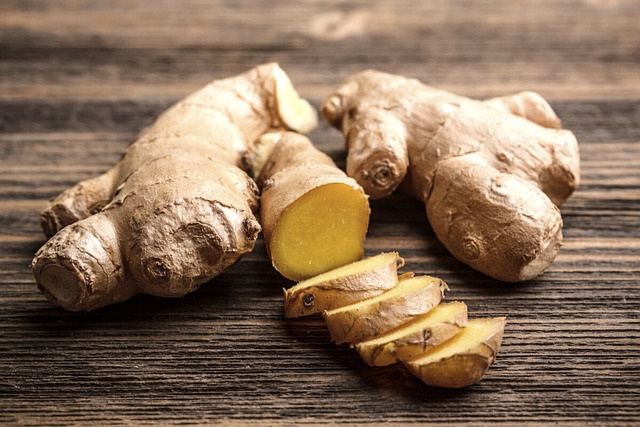
Photo: Joseph Mucira from Pixabay
Many know of ginger as a digestive aid that helps alleviate upset stomach, nausea and other gastrointestinal tract issues. Ginger along with other members of the ginger family – turmeric, cardamom and galangal – have anti-inflammatory and anticancer properties that target various cancer pathways.
Over the years we’ve learned a lot about curcumin, the active constituent of turmeric, and its anti-cancer properties. There have been over 4,000 papers published on curcumin and cancer showing the potential benefit of turmeric for anti-cancer purposes.
Looking for a unique way to enjoy ginger? Try this digestive shrub!
Green Tea
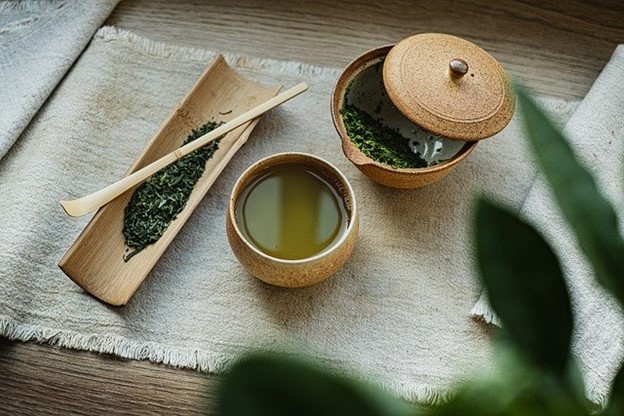
Photo: Mirko Stödter from Pixabay
Green tea has been shown to both protect cancer development and inhibit and kill cancer cells. The most-studied polyphenol of green tea is a catechin called Epigallocatechin gallate (EGCG). EGCG has been shown to suppress the growth and spread of cancer cells and induce cell death in a variety of cancer types. Green tea has also been shown to reduce the rate of recurrence of breast cancer.
And tea isn’t just for drinking or using in elixirs. Find creative ways to use tea in your cooking and baking here.
Mushrooms
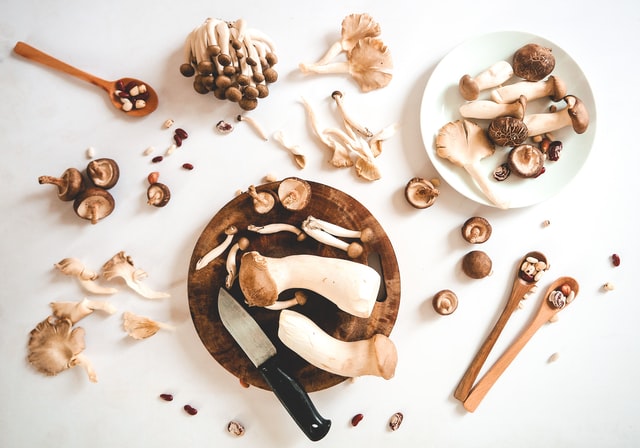
Photo: Thanh Soledas from Unsplash
A meta-analysis published in 2021 of 17 cancer studies revealed people who ate 1/8-1/4 cup of mushrooms daily had a 45% lower risk of cancer than those who did not consume mushrooms.
Along with being immune-modulating, mushrooms have anti-tumor and anti-cancer benefits through a plethora of mechanisms including hindering blood supply to the cancer and prompting cancer cell death, among other factors.
Discover the world of medicinal mushrooms and how to use them in your kitchen.
Nuts: Almonds and Walnuts
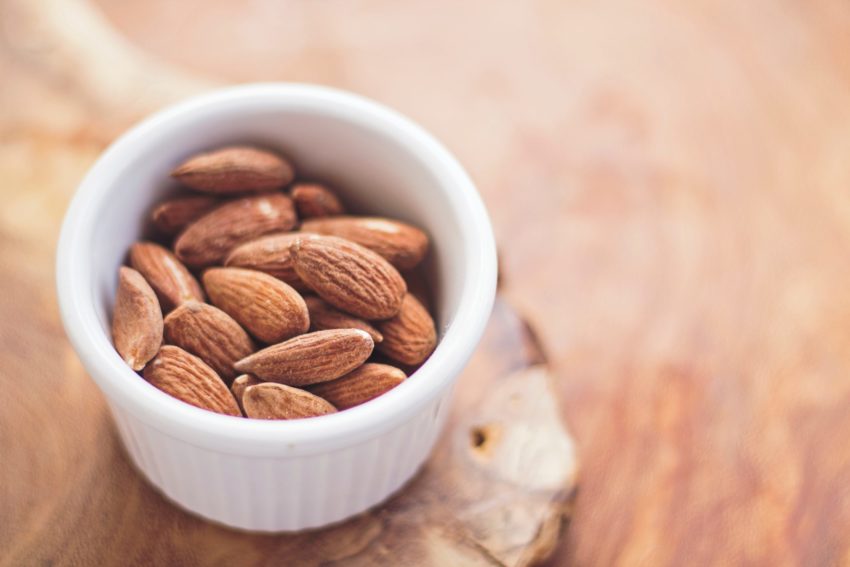
Photo: Juan José Valencia Antía from Unsplash
Walnuts are one of the most studied nuts as they relate to cancer. A study in breast cancer patients published in 2019 showed women who consumed two ounces of walnuts each day between biopsy and surgery had an activation of pathways that promoted cancer cell death and inhibited cancer cell growth and spread. And a small study in women published in 2015 concluded a high consumption of peanuts, walnuts and almonds may reduce the risk of developing breast cancer.
Enjoy walnuts and almonds on their own as cancer fighting foods, or grind them into a tasty homemade nut butter.
Seeds: Chia Seeds and Flax Seeds
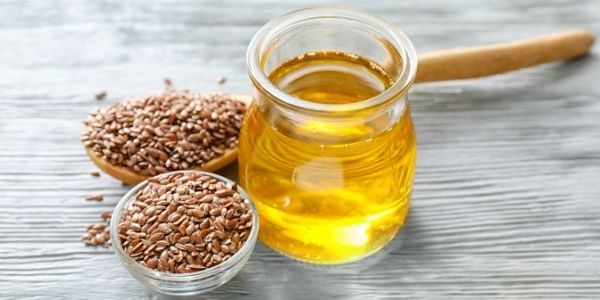
Along with being a good source of dietary fiber, flax and chia seeds are high in healthy omega-3 fatty acids, which help fight inflammation and support proper estrogen metabolism. Freshly ground flax seeds potentially block estrogen receptors on breast cancer cells which can lead to impeding the cancer growth.
Chia seeds contain all nine essential amino acids making them a good source of plant-based protein. Experiment with these 10 ways to use chia seeds.
Each of these top anti-cancer foods appear to have many of the same effects, and the research offered here notes individual foods. Imagine the powerhouse impact an anti-cancer diet could have with the cumulative mix of these various foods throughout the week! And, add the potent beneficial effect you can have on your body when you incorporate anti-cancer foods while avoiding inflammatory ingredients. The combo can have synergistic results for a better feeling and healthier you!
About The Author: Jenny Bradley

Jenny Bradley has been thriving with a cancer since her diagnosis in 2017. She is passionate about guiding fellow cancer patients into more peace and less overwhelm during their cancer journey through her coaching and courses. Jenny lives in the middle of the USA with her husband, Mike, and their cute little dog named Poppy.
Learn More: www.jennybradley.net
Instagram: @shrinkthemutant
Free Resource Library
Enjoy more than 40 downloadable guides, recipes, and resources.















